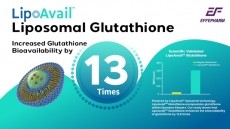Carotenoids linked to lower risk of non-Hodgkin lymphoma
well as vegetables in general, could reduce the risk of non-Hodgkin
lymphoma by almost 50 per cent, says a new study.
Non-Hodgkin Lymphoma is a cancer that starts in the lymphatic system and ecompasses about 29 different forms of lymphoma. According to the American Cancer Society, over 50,000 new cases are diagnosed in the US every year.
The new epidemiological study, published in the June issue of the American Journal of Clinical Nutrition (Vol. 83, pp. 1401-1410), compared the dietary intake of 466 people with non-Hodgkin lymphoma (NHL) and 391 matched controls. Carotenoid intakes were estimated using the USDA nutrient databases.
The researchers, led by Linda Kelemen from the Mayo Clinic College of Medicine, found that people with a higher number of weekly servings of all vegetables was linked to an lower risk of NHL (42 per cent lower risk than those with the lowest intake).
Green leafy vegetable and cruciferous vegetable intake was also associated with a reduced risk of NHL, with the highest intake reducing the risk by about 40 per cent for both vegetable types, compared to the lowest intake.
People with the highest intake of the carotenoids, lutein and zeaxanthin, were associated with a 46 per cent lower risk of NHL, compared to people in the lowest intake group, while zinc intake was also linked to a lower risk (42 per cent).
"Higher intakes of vegetables, lutein and zeaxanthin, and zinc are associated with a lower non-Hodgkin lymphoma risk," concluded the researchers.
Although this was an epidemiological study, the researchers propose that the mechanism behind this protective effect is linked to the antioxidant effects of the carotenoids. One of the risk factors for NHL is said to DNA damage caused by oxidative stress from reactive oxygen species (ROS), and this is reduced by an antioxidant-rich diet.
Intake of cruciferous vegetables has previously been linked to lower risks of certain cancers, including colon cancer, while increased carotenoid intake has been linked to lower risk of prostate cancer.
The "five-a-day" message is well known, but applying this does not seem to be filtering down into everyday life. Recent studies have indicated that consumers in both Europe and the US are failing to meet recommendations from the WHO to eat 400 grams of fruit and vegetables a day.












